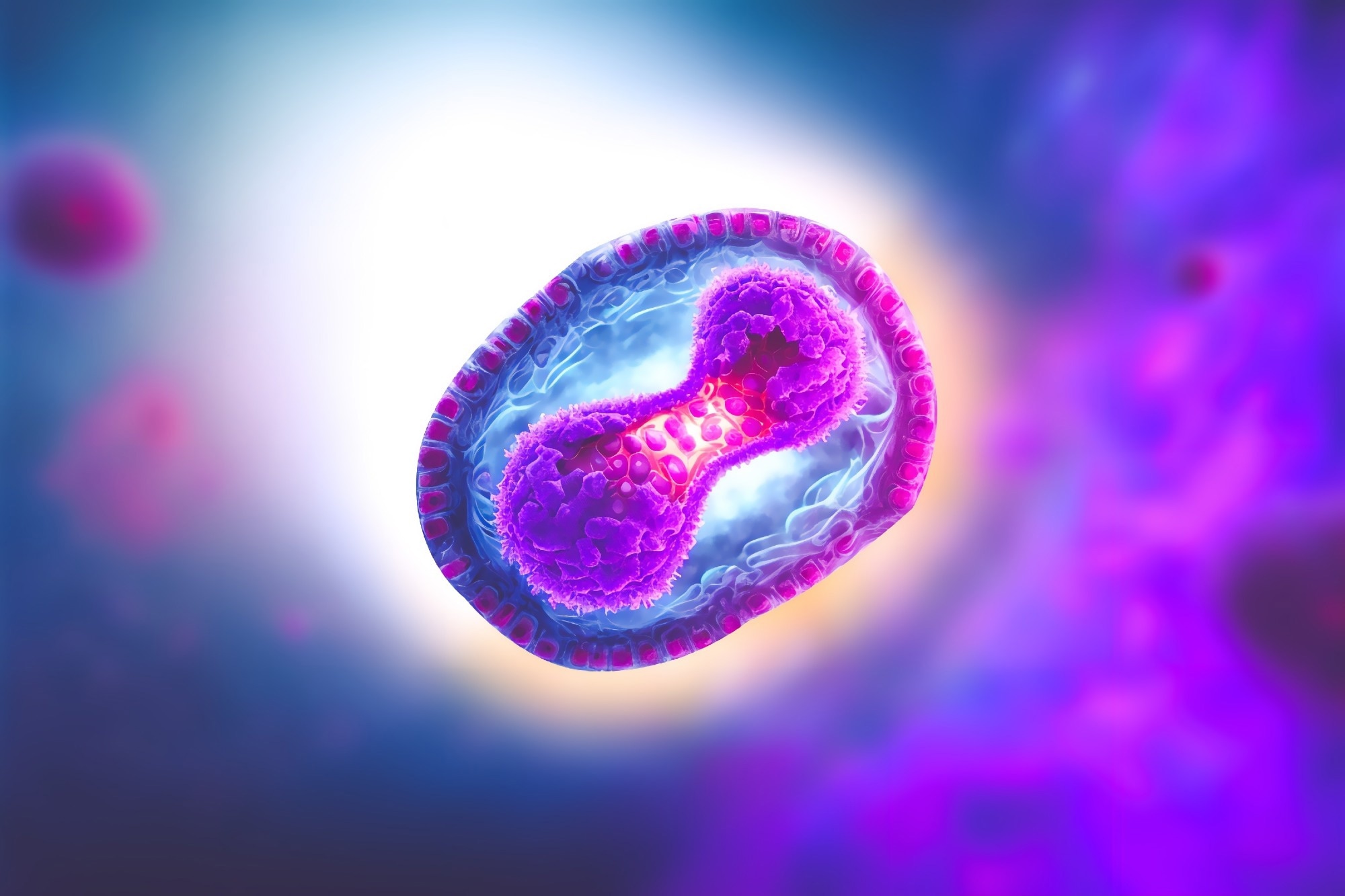The 2022 MPXV outbreak has affected a large proportion of the global population, with most cases among gay, bisexual, and other males having sex with males (MSM) in association with sexual contact. Therefore, evaluating the effect of MPX interventions such as vaccination and reduced sexual partnerships could inform policymaking and strategy development authorities for improved global health.
 Study: Modelling the impact of vaccination and sexual behavior change on reported cases of mpox in Washington D.C. Image Credit: CI Photos / Shutterstock
Study: Modelling the impact of vaccination and sexual behavior change on reported cases of mpox in Washington D.C. Image Credit: CI Photos / Shutterstock

 *Important notice: medRxiv publishes preliminary scientific reports that are not peer-reviewed and, therefore, should not be regarded as conclusive, guide clinical practice/health-related behavior, or treated as established information.
*Important notice: medRxiv publishes preliminary scientific reports that are not peer-reviewed and, therefore, should not be regarded as conclusive, guide clinical practice/health-related behavior, or treated as established information.
About the study
In the present study, researchers modeled the effects of vaccinations and sexual behavioral changes on MPX case counts during the 2022 MPXV outbreak in the Washington District of Columbia (D.C).
The team reviewed data from Washington D.C. residents and a dynamic, previously published sexually transmitted infection (STI) transmission network model among MSM, fitted with MPX cases documented by D.C. by January of 2023. Vaccination data and documented reductions in sexual partners of MSM individuals were integrated into the model. The modeling output comprised estimated MPX cases over time with or without JYNNEOS vaccinations or changes in sexual behavior.
The model network was based on survey responses of MSM individuals recruited at Lesbian, Gay, bisexual, transgender, queer, and other gender and sexual minorities (LGBTQ+) establishments in Georgia or via online platforms. Data were obtained on participants’ main partners, casual partners, and the number of encounters with one-time partners in the previous three months.
The modeled individuals belonged to the following categories: MPX-susceptible individuals (S), MPXV-infected but non-infectious and pre-symptomatic individuals (E), pre-symptomatic but infectious individuals (P), infectious and symptomatic individuals (I), recovered and resistant individuals (R), single-dose JYNNEOS vaccinees (V1) or double-dose JYNNEOS vaccines (V2).
The model was parametrized to denote the MPXV outbreak in Washington, D.C., which documented the last MPX case on 22 November 2022. The modeled population comprised 37,400 individuals, equivalent to the MSM population in Washington, D.C. An additional analysis was performed, including only 20,000 MSM individuals.
Five parameters were fit to Washington D.C. MPX cases information: the likelihood of MPXV transmission by every contact individual (µ), the average pre-symptomatic and infectious period length (l), the maximal reduction, in percentage, the likelihood of sexual intercourse once daily due to the MPXV outbreak (ω), the count of MPXV-infected individuals at the Capital Pride festival/parade, which took place on 11 and 12 June (ε), and the percentage of documented JYNNEOS doses administered to the modeled individuals (θ).
Further, sensitivity analyses were performed by estimating the cumulative MPX cases if vaccine administration was preponed or postponed by four weeks and the cumulative MPX case counts in the case of a 50% decrease or increase in JYNNEOS vaccine availability.
Results
The estimations indicated that the initial MPX case reductions till September could be attributed to changes in sexual behavior. However, after a year of the MPXV outbreak, vaccinations would prevent more MPX cases than sexual behavior changes, and by 21 May 2023, 2,700 MPX cases would be reported without any interventions. Individually, vaccination and sexual behavioral changes averted 64.0% and 21% of MPX cases, respectively, and combined, the interventions averted 80.0% of MPX cases.
In the absence of vaccinations, behavioral alterations decreased the cumulative MPX case counts but prolonged the MPXV outbreak. The team found that the μ, l, ω, ε, and θ values of 88, 4.0, 40, 40, and 100, respectively, generated the most appropriate fit between the modeling output and clinical data, indicative of high MPXV transmissibility, and considerable adjustments by MSM individuals in their sexual behavior to decrease onward MPXV transmission.
Individuals showing greater frequencies of engaging one-time sexual partners showed an increased likelihood of contracting MPXV prior to receiving vaccines, and by the delay of MPXV transmission, changes in sexual behavior enabled individuals engaged in high sexual activities to receive JYNNEOS vaccines. According to the estimates, the MPXV outbreak would come to an end within 12 months with vaccination. After one year, there would be 77 MPX cases (or infectious persons on any particular day) without any MPX intervention.
Vaccinations would reduce the prevalence of MPX cases to two or zero cases when coupled with changes in sexual behavior. Alternatively, sexual behavioral alterations, individually, would enhance MPX prevalence to 180 cases in 12 months of the MPXV outbreak. By 12 months into the MPXV outbreak, initiating vaccination four weeks earlier would have reduced MPX case counts by 31.0%, and delaying vaccination by four weeks would have elevated MPX case counts by 29.0%.
A 50% increase in JYNNEOS vaccine availability would reduce cumulative MPX case counts by 12.0%, and reducing the availability by 50.0% would increase the cumulative MPX case counts by 52.0%. The findings indicated that vaccinating individuals sooner would be more effective in preventing MPX cases than the delayed administration of more vaccines or greater vaccine coverage.
Overall, the study findings showed that in Washington D.C., until October 2022, most MPX cases were prevented by sexual behavioral changes. Vaccinations showed effects from September onward and were primarily responsible for ending the MPXV outbreak, averting more MPX cases on the whole. The findings indicated that both interventions are necessary to control MPXV transmission.

 *Important notice: medRxiv publishes preliminary scientific reports that are not peer-reviewed and, therefore, should not be regarded as conclusive, guide clinical practice/health-related behavior, or treated as established information.
*Important notice: medRxiv publishes preliminary scientific reports that are not peer-reviewed and, therefore, should not be regarded as conclusive, guide clinical practice/health-related behavior, or treated as established information.